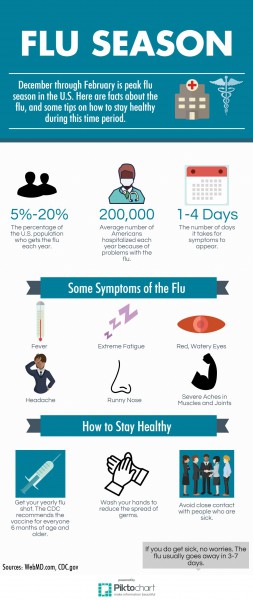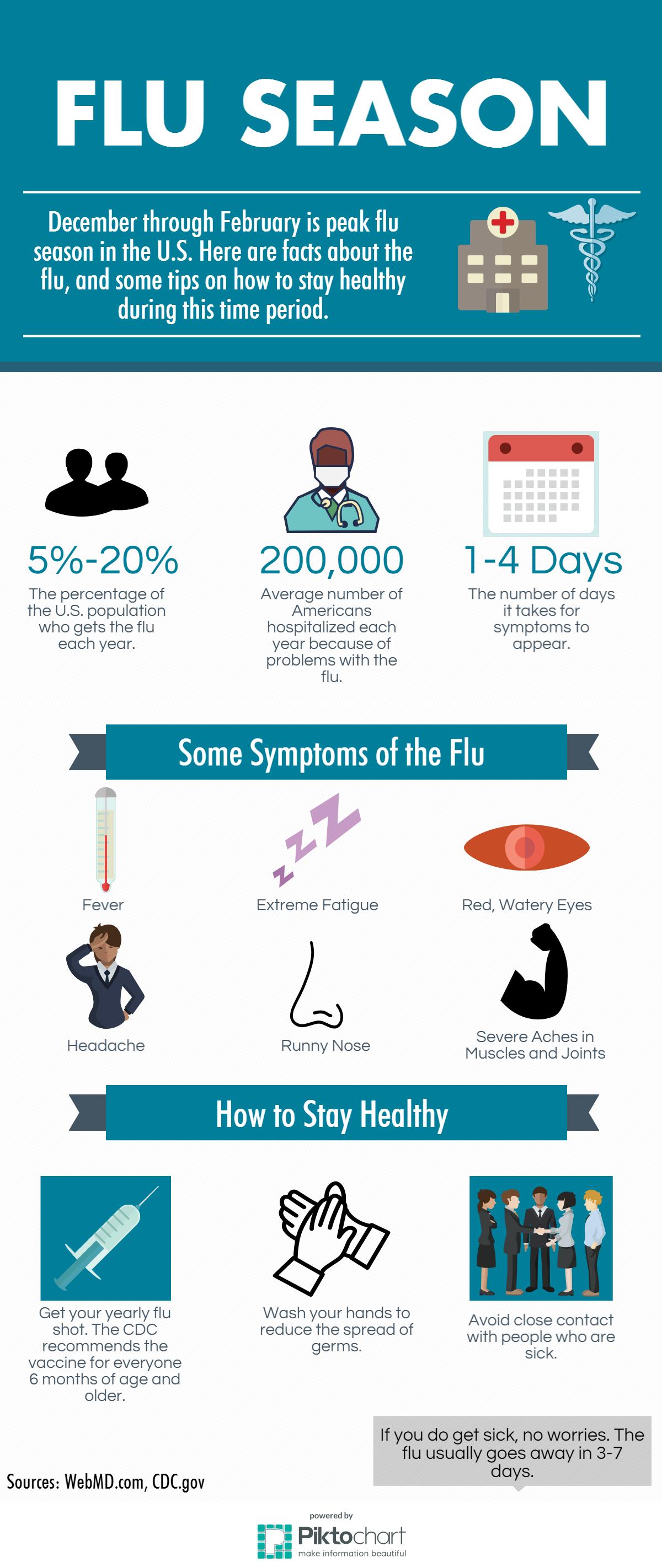Flu season infects Davis High

By Maddie Yang,
Bluedevilhub.com Staff–
The flu season has already hit Davis High; the attendance office reports that absences due to sickness have been increasing since October. The flu affects both DHS students and faculty, which can create difficulties keeping up with daily work.
DHS nurse Rhona Youtsey says that it is not possible to predict what the flu season will look like. Throughout the winter season each year, Youtsey sees around the same number of sick students come into her office.
When a patient comes in, the first thing Youtsey does is take his or her temperature. If the patient shows severe coughing or fever, he or she is sent home.
Youtsey says that if a student is sick, even if the effects are not strong, the virus could be passed on to elderly people and children who may show more severe symptoms.
Sophomore Helena Leal was sick for five days at the beginning of the school year and had to figure out a way to keep up with school work.
“It was hard to get back on track. I got alternative work so it was a little easier […] but then again there’s double the work because there is current and catch-up work to do,” Leal said.
Other students wait until the last minute to catch up on school work. Sophomore Sam Amezcua was sick at home but found ways to enjoy his time.
“I watched TV like the whole time and I did have to write a six-page English paper,” Amezcua said.
After being sick for two days, “my mom made me go back to school because I was gonna miss too much [work],” Amezcua said. However, nurses discourage this.
“I strongly believe if you are sick, you need to stay home,” said Anne Oh, a nurse at Dignity Health. “Nobody wants to miss school, but you have a responsibility to protect your friends from being sick. Also, it will be a fast recovery if you stay home resting.”
According to Oh, not many high school students visit the hospital with the flu. Oh says that students are not at a risk unless they have a long-term illness such as diabetes, respiratory problems or immune compromised illnesses, such as cancer or leukemia.
To screen out the flu from a cold, Oh takes a nose swab to analyze the virus. Other common symptoms of the flu include fever, coughs, chills and body aches.
To prevent the flu from spreading, students should get a flu shot every year. According to Oh, students should avoid close contact with sick students, cover the mouth and nose when sneezing and wash hands consistently to prevent the spread of germs.



